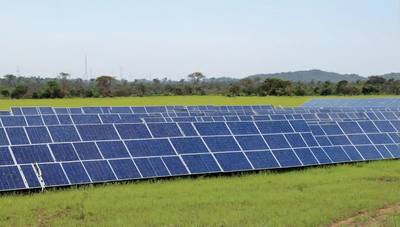India's solar panels exports plunge in September due to US tariffs
Industry officials and analysts reported that India's solar modules exports dropped sharply to their lowest level this year in September after U.S. Trade Measures curbed shipments. This forced manufacturers to redirect supply to the domestic market.
India's exports of panels to the United States have risen in recent years as developers seek alternatives to Chinese products due to Washington's restrictions.
In the Trump administration, the U.S. imposed a tariff of 50% on Indian goods. Since then, it has tightened its scrutiny over imports, as they investigate whether components made in China are being shipped out of India.
Government data shows that India's solar module exports in September fell to $80 million, down from $134 millions in August.
Girishkumar K. Kadam, senior Vice President at ICRA, says that the investigational risk from tariffs and the U.S. has materialized for some players.
According to ICRA, India's solar module production capacity is 110 gigawatts. It is expected to reach 165 GW in March 2027.
DOMESTIC OVERSUPPLY FEAR GROWS
The slowdown in demand overseas has increased fears about an oversupply on the domestic market. Annual solar installations are still below the 44-45GW required to meet the renewable energy targets for 2030.
Analysts predict consolidation among small module-only companies as margins are squeezed. They said that vertically integrated companies with wafer and cell capacity would be better able to weather the downturn.
According to a letter that was reviewed by, in August, the All India Solar Industries Association asked the Indian Banks' Association not to fund new, unviable modules manufacturing projects. This would help avoid future bankruptcy.
Some Indian companies focus more on adding wafer, ingot, and cell lines than modules.
Solex Energy for example has said that it will no longer build the 15 GW modules originally planned, but instead 10 GW cells.
Vipul Shah is a director of Solex. "The company's decision to reduce the production of modules was deliberate, as it did not want the overcapacity to lead to future price wars," he said. Sethuraman N.R. reported the story.
(source: Reuters)




